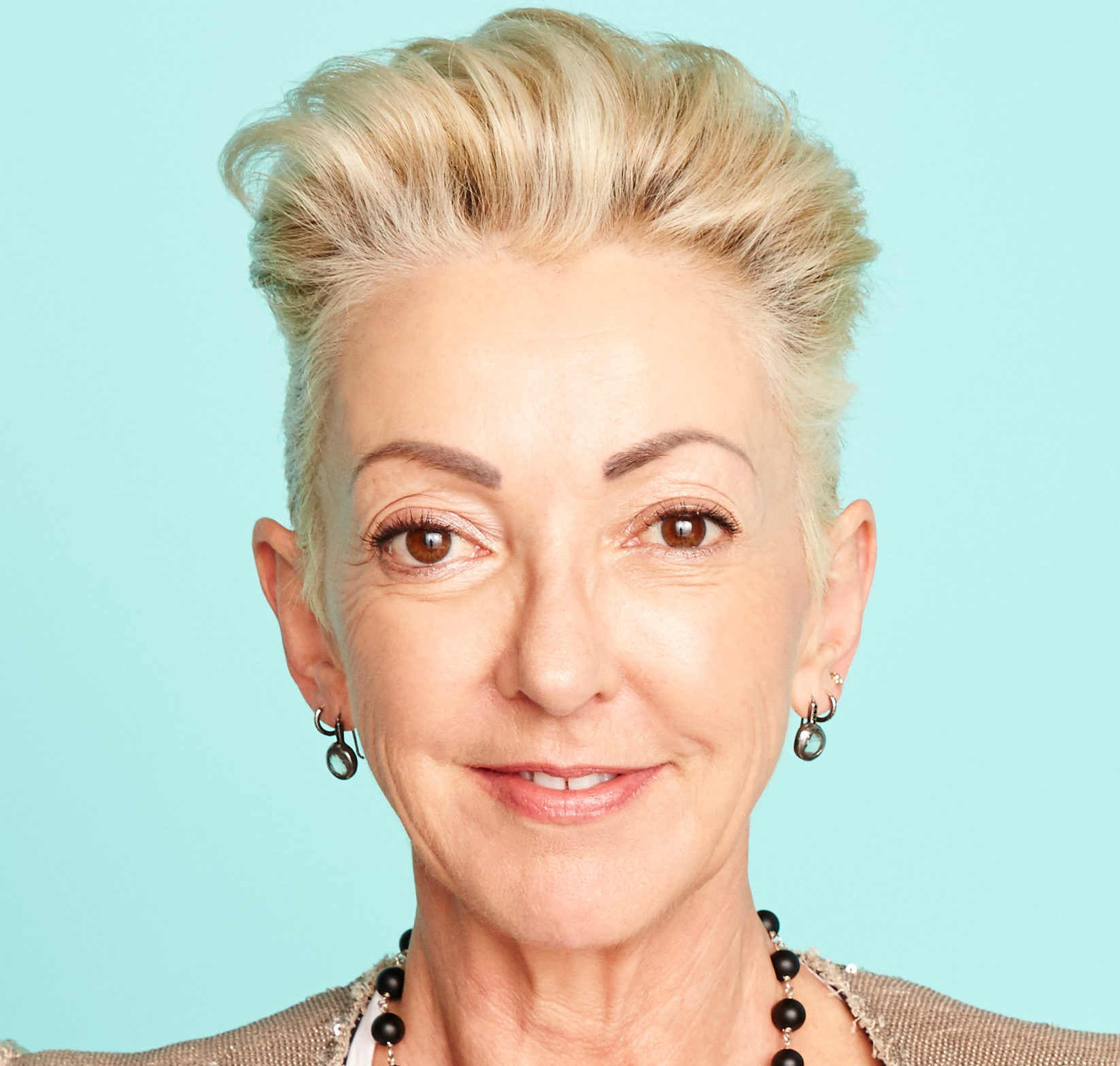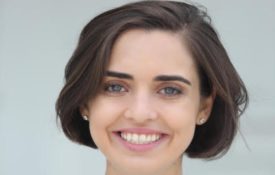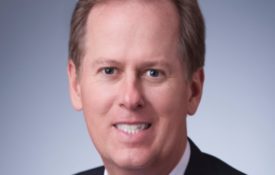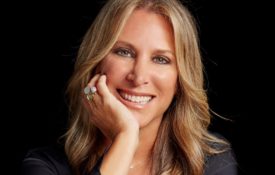What is your backstory and how did you come up with the vision for Dermalogica?
My first job, at 13, was as a “Saturday girl” in a hair salon, running errands behind the scenes. After high school, I obtained my beauty therapy qualification. In the UK, this was a two-year training program that covered theology and chemistry and included a one-year apprenticeship. I got my teaching credentials soon after. I moved to the U.S. in 1983. However, most states at the time didn’t even have a licensing requirement! I saw an opportunity to fill this gap in education by opening The International Dermal Institute, a postgraduate training center where skin therapists could hone their skills and be more skilled and competitive.
Soon, it became clear that there were no American-made professional skin-care products—all the students were using imported European brands. And because it was the mid-’80s, those brands were full of synthetic fragrances and artificial colors that weren’t ideal for the skin. So, in 1986, we launched Dermalogica here in Southern California, with formulas free of artificial colors and fragrances, no mineral oil, lanolin, SD alcohol, or other ingredients that were popular at the time. My vision was for a clean, almost clinical brand that would help professional skin therapists get the best results in their treatment rooms and for their clients at home.
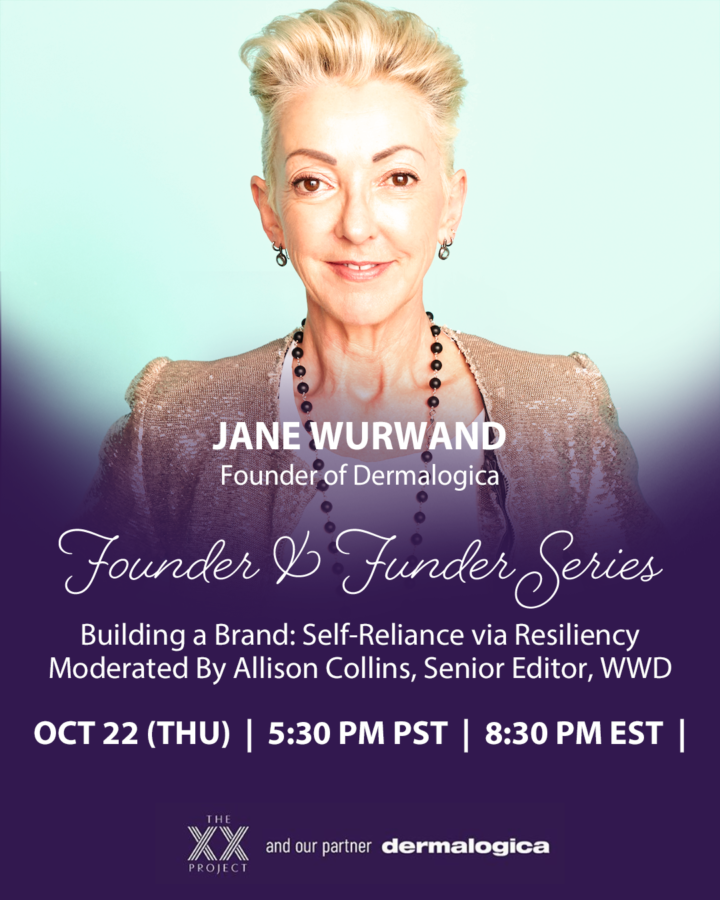
Learn more about becoming a member of The XX Project here.
How did you scale and grow the brand in the early stages?
Much of our initial growth was through word of mouth, through the students that came to class and used Dermalogica in their treatment rooms. These entrepreneurs saw the results that Dermalogica achieved for their clients, and soon we had therapists coming in from Northern California, Las Vegas, and beyond, carrying the brand in their salons. We were marketing to entrepreneurs, and we were built by entrepreneurs. Our bigger why was making the salon professionals more successful entrepreneurs through better techniques and products. This bigger purpose has guided everything we do and make.
We were careful with our distribution. People often referred to Raymond [Wurwand, her husband and Dermalogica co-founder] and me as the “sales prevention team.” We didn’t sell to large chains with lengthy credit terms, which would have taken on significant risk.
I think we might be the first company to have launched in Australia before launching in New York. Australia had a well-developed skin-care industry, while New York at the time didn’t even have a license requirement. It was also less expensive, with a strong media outreach, and we saw a big opportunity to stand out.
What worked to attract and retain customers?
Our foundation was and still is our advanced education. We upskill over 100,000 professional skin therapists worldwide with in-person classes, an online curriculum, “D-streaming” live events, virtual FaceMapping skin consultations and a strong platform of marketing and business programs. This has brought us to the industry leadership position worldwide. That said, we work with our authorized accounts to build their own salon client business and secure clients through the demand for Dermalogica.
What new consumer behaviors are starting to emerge that make you excited for the future of your industry?
Consumers have become much more serious about taking care of their skin and learning about it from a professional, rather than cherry-picking products off a shelf with poor results. Consumers have a growing appetite for skin-care education, which we are the leaders in, and Gen Y skin therapists are eager to learn from the best.
You are incredibly accomplished in your career and we all know that does not come without significant challenges and failures. What advice do you have for pushing through hard times?
Setbacks and challenges are necessary to build our resilience. When you have tripped and fallen a few times, you figure out how to get back up quickly. It’s the same in business as in life—it’s not about balance, it’s about resilience and self-reliance. You know that you have the ability to get up and keep going because you have done it many times!
What advice do you have for the next generation of female entrepreneurs who are looking for ways to make a valuable impact on society and culture?
I have the same advice whatever gender you identify as. Dig deep inside yourself for what it is that drives you—what is your bigger why? Not the salary or the position, but the difference you want to make in the world—your purpose. When your purpose is found, you clearly see the way you can impact through your life and work. I believe in the concept of seeking and finding this purpose so much that our Wurwand Foundation focuses on exactly this through our nonprofit initiative, FOUND/LA. Check out our work and impact at foundla.org.
How can women embrace transition and pivot to a new career path?
Women are especially adept at pivoting and change. Heck, many of us have even changed our name a few times through marriage and divorce! We are able to change our role from individual to mother, change our body through giving birth, change our location, our job, and our home—there is very little about us that doesn’t change dramatically throughout our lives. Every change is a new opportunity and if we look back on our lives so far and count the many ways we have embraced change, that alone should give us the courage and trust that our next choice can be even better.






































